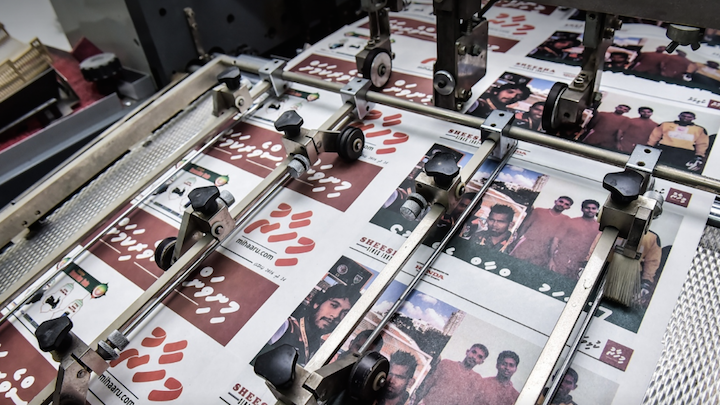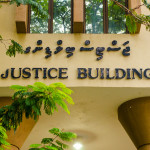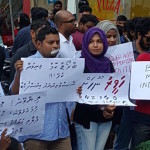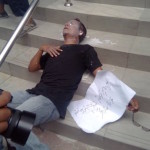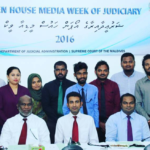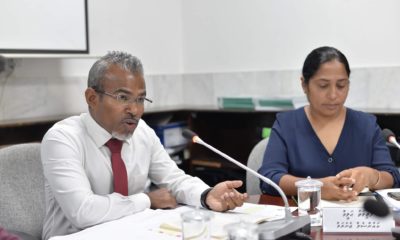The police have summoned and interrogated the editor of newspaper Mihaaru over two articles critical of the Maldives criminal justice system.
A police spokeswoman confirmed that Ismail Naseer was questioned on Monday night but refused to provide any details.
“We have no comment on the nature of the case involved,” she said.
Mohamed Hamdhoon, a spokesman for Mihaaru, told the Maldives Independent that Naseer was summoned after the criminal court and the Department of Judicial Administration filed complaints about two recent articles.
“Police informed him that they had not started any investigations yet, but was checking on the complaint. They questioned about two articles in the paper and about some comments made by the public on these two articles,” he said.
The nature of the investigation is unclear as the police lack the jurisdiction to investigate complaints against media outlets for defamatory or slanderous content.
The 2016 anti-defamation law authorises the Maldives Media Council, comprised of members elected by journalists, to take action against print and online media.
“Ismail asked police why they are investigating this complaint as it has to be investigated by the media council. They said that they were looking into how the investigation can be carried out,” Hamdhoon said.
Hamdhoon said that the police also sought to question the two journalists who wrote one of the articles, “but they weren’t able to because they are out of the country at the moment.”
The first article, titled ‘Allegations of mistreating detainees: What is the truth,’ was published on March 10 and examined allegations of negligence and mistreatment of inmates and detainees under the custody of the Maldives Correctional Services and the Maldives Police Service.
The second article, published on March 19, was about stalled trials and families of victims awaiting justice while defendants accused of serious crimes are detained for years.
In some cases, defendants have been locked up for up to six years while their trials dragged on at the criminal court, the paper reported.
Naseer was interrogated a day after the criminal court issued a stern statement threatening to take legal action against journalists who “encourage terrorism” and threaten the country’s peace, stability and sovereignty.
The statement drew strong condemnation from the main opposition Maldivian Democratic Party, which called it an act of intimidation against journalists that demonstrates the politicisation and lack of independence of the judiciary.
“With one threatening statement, the criminal court obliterates the need for media watchdog, for police’s investigative powers, [Prosecutor General’s] prosecutorial powers,” tweeted MDP MP Eva Abdulla.
The broadcasting regulator has meanwhile echoed the criminal court’s warning with a threat of punitive action against private TV stations.
In a circular issued Tuesday afternoon, the Maldives Broadcasting Commission accused some media outlets of “spreading falsehoods and slander that encourages terrorism, tarnishes the country’s good name internationally, and strains the Maldivian state’s diplomatic relations and ties with friendly nations.”
The commission also accused broadcasters of “inciting fear and hatred” with coverage of the ongoing flu outbreak and warned that action will be taken against violations of the anti-defamation law and the broadcasting code of practice.
Earlier this month, the broadcasting regulator slapped hefty fines on Raajje TV in the first punitive action taken under the controversial defamation law.
The seven-member broadcasting commission has been accused of double standards after the appointment of Fathmath Zaina and Zeena Zahir in April 2016 by the ruling party-dominated parliament. Both former journalists were working under First Lady Fathmath Ibrahim at the president’s re-election campaign office.
Raajje TV has since launched a fundraising drive in anticipation of further fines.
In November, Mihaaru journalist Fazeena Ahmed was also summoned for questioning by the police in the first criminal inquiry into a news article since the widely condemned re-criminalisation of defamation.
The police spokeswoman said at the time that the summons “does not necessarily mean that Fazeena is under investigation.”
Mihaaru, the only printed daily in the Maldives, was established in May by former Haveeru journalists who resigned en masse after the country’s oldest newspaper was shut down amid an ownership dispute.
The threats of action and police summons come amidst unprecedented challenges to press freedom in the Maldives. During the past two months, three Raajje TV journalists were found guilty of obstructing police duty and handed fines by the criminal court.
They became the first journalists to be convicted in the Maldives in more than a decade.
The prosecution of the journalists was in stark contrast to the lack of justice for the abduction of Maldives Independent journalist Ahmed Rilwan, the arson attack on Raajje TV, and the near-fatal beating of the station’s former news head.
The Maldives is now ranked 112th on the France-based Reporters Without Borders’ press freedom index, which said the country remains “very hostile for independent and opposition media”.

